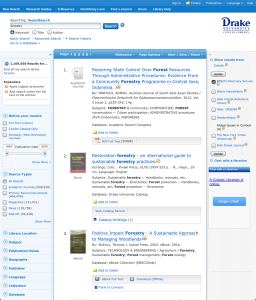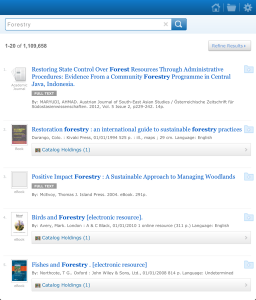“The Hathi Trust is a partnership of academic and research institutions, offering a collection of millions of titles digitized from libraries around the world.” Full text of documents in the collection is available only to members of partner institutions (hathitrust.org).
The Authors Guild brought suit against Hathi Trust in September of 2011, alleging massive copyright infringement. Both parties filed motions requesting summary judgment.
A “summary judgment” is “a final decision by a judge, upon a party’s motion, that resolves a lawsuit before there is a trial…Summary judgment is awarded if the undisputed facts and the law make it clear that it would be impossible for the opposing party to prevail in the matter were to proceed to trial.” (Plain English Law Dictionary, nolo.com)
The plaintiffs (Authors Guild) moved to request that the court declare fair use not available to libraries as a defense, because libraries have the protections in section 108 of the copyright law. If you are not familiar with section 108, review it here. The Judge completely rejected this claim (A big win for fair use and libraries, Scholarly Communications @ Duke). In my humble opinion, Section 108 is very small, and offers very specialized exceptions for copying in libraries. There is no way it could substitute for Fair Use.
The defendant (Hathi Trust) had three assertions for summary judgment: first, that the Authors Guild was not able, under the copyright law, to sue on behalf of its members. The Judge agreed with this for US associations, but possibly not for foreign associations due to treaties. (A big win for fair use and libraries, Scholarly Communications @ Duke).
The second judgment requested by the Hathi Trust was that its Orphan Works project could not go to trial because it had not been carried out yet. Orphan Works are works that are under copyright but whose authors cannot be located. The Authors Guild was concerned about the Orphan Works Project would allow access to such works. The Judge in this case agreed that there was no case until such access actually happened.
The third – and most significant – summary judgment for the defendants in this case is whether the actions of the Hathi Trust can be supported by Fair Use. The Judge did a four factor analysis and came to the conclusion that Fair Use does support the creation of a digital library such as Hathi Trust. In conclusion, he said:
“I cannot imagine a definition of fair use that would not encompass the transformative uses made by the defendants and would require that I terminate this invaluable contribution to the progress of science and the cultivation of the arts that at the same time effectuates the ideals of the ADA.”
For the full Four-Factor analysis and more details, go to A big win for fair use and libraries, Scholarly Communications @ Duke, Kevin Smith, Oct 11, 2012.



